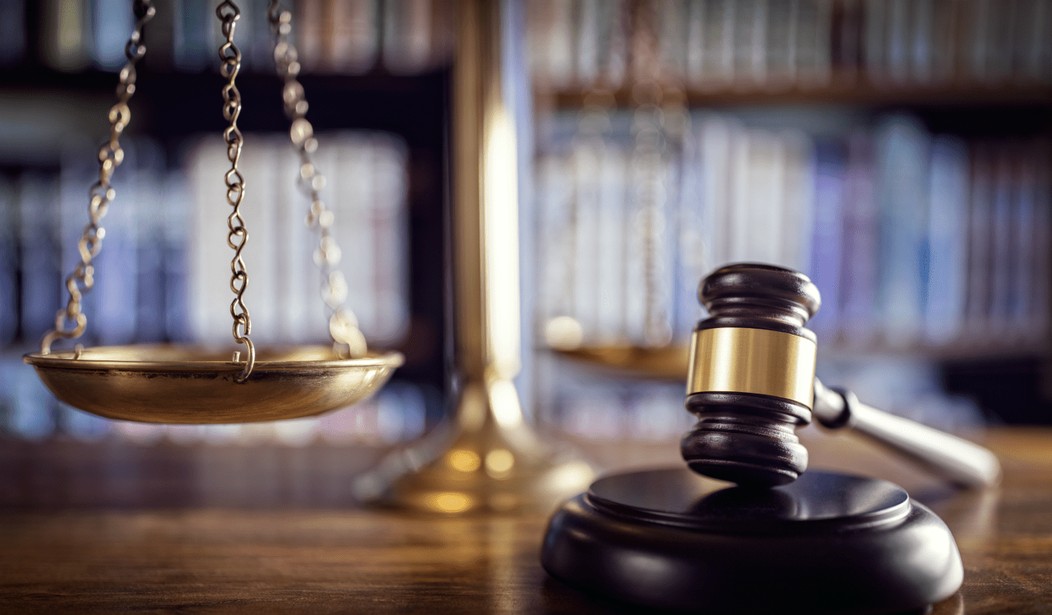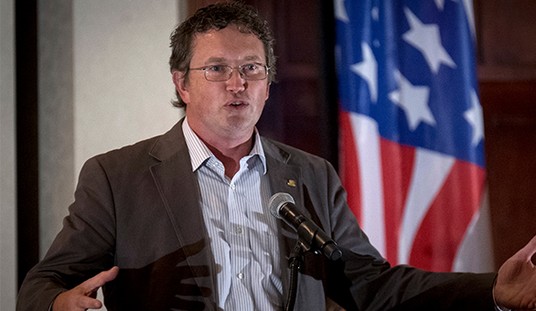An anonymous male student expelled from Amherst College for sexual assault sued the college, claiming that he is innocent. The student says there is clear evidence supporting his claim, but the judge overseeing his lawsuit blocked the accused’s attempt to subpoena his female accuser’s text messages on the grounds that re-litigating the matter “would impose emotional and psychological trauma” on her.
“This judge, in my opinion, is an accessory after the fact to this woman’s vicious lie,” Stuart Taylor, co-author of the book The Campus Rape Frenzy: The Attack on Due Process at America’s Universities, told PJ Media. He scoffed at the idea that the accuser — whom his book calls “Alice Stanton” — suffers from “trauma” because of the lies she told about the accused — whom the book refers to as “Michael Cheng.”
“What trauma?” Taylor said. “The trauma of making up a lie?”
The case traces back to the early morning of February 5, 2012. The evening before, Cheng — who was Stanton’s roommate’s boyfriend — had been drinking heavily. Even Amherst admitted that he was “black out drunk.” Cheng’s girlfriend was out of town, and Stanton, who had been heavily flirting with another man “with a military trained bod,” started making out with him in public. The two left for Stanton’s room.
Then Stanton reportedly engaged in oral sex with Cheng, who had passed out due to intoxication. (He later recalled that he remembered nothing of the act.) Cheng then left, and Stanton texted the man with the “military trained bod.”
After this first sex act, Stanton sent text messages to a third party, expressing remorse after having sex with her roommate’s boyfriend. “Ohmygod I jus did something so fuckig stupid [sic],” she texted. She added that “it’s pretty obvi I wasn’t an innocent bystander.” She also added, “dirty talk comparing me to my roommate should NOT DO THINGS FOR ME.”
Stanton later texted that the man she had been flirting with earlier — the one with the “military trained bod” — who came to her room. Nevertheless, she complained that he was “just talking” to her. “Like, hot girl in a slutty dress. Make. Your. Move.” Later, she texted, “Ohmygod action did not happen til 5 in the fucking morning.”
Naturally, there was a great deal of drama after that night — Cheng broke up with his girlfriend and Stanton’s roommate slept elsewhere for a time. But Stanton did not call the police to report sexual assault, and she did not approach Amherst’s Title IX office either.
Almost a full two years later, after Stanton befriended “victims’ rights” advocates, she came to the “realization” that Cheng had sexually assaulted her. Stanton complained to the school’s Title IX office. In her complaint, Stanton argued that she had withdrawn her consent because she was repulsed by Cheng’s sexual innuendo referencing her roommate. (A claim laughable on its face given her own text messages.)
Amherst hired an employment attorney, Allyson Kurker, to investigate. Kurker interviewed the witnesses perfunctorily, and her report said that Stanton “did not email, text, or otherwise reduce what had happened with Mr. [Cheng] to writing.”
Yet, in the hearing on the matter, Stanton said she had texted a friend to come spend the night with her because she had felt “very alone and confused.” In addition, she added to her story, saying that she felt “pressure” to bring Cheng to her room.
Despite these clear contradictions, Amherst ruled in Stanton’s favor and expelled Cheng. Cheng then hired a lawyer and obtained the texts decimating Stanton’s credibility.
That brings us back to last month’s motion, when Seattle District Judge James Robart, a Bush appointee, decided that Stanton’s feelings outweigh key evidence that would reportedly prove Cheng’s innocence.
Cheng sued Amherst, not Stanton, and Robart’s motion suggests that might have been a mistake. As part of his case against Amherst, Cheng’s legal team subpoenaed Stanton to testify at the trial and turn over certain documents and records of statements she made about the alleged assault. But Stanton refused to cooperate, and Robart sided with her.
“An in-person deposition of boundless scope would impose a substantial burden on [Stanton],” Robart wrote. “The deposition would force [Stanton] to relive a night in which she asserts Mr. Doe sexually assaulted her. It would also reraise the subsequent investigation, hearing, and period of publicity that [Stanton] has endured. It takes no leap of logic to reason that a live deposition would impose emotional and psychological trauma upon [Stanton].”
Yes, a judge ruled that a woman’s allegedly traumatic feelings of an alleged sexual assault that evidence suggests did not happen outweigh a man’s right to defend himself in court. What of the “emotional and psychological trauma” that Cheng felt when he was accused, expelled, and later confronted with evidence that Stanton had been lying? But the key issue isn’t his feelings or hers, but his right to defend himself.
Robart also argued that since Cheng isn’t suing Stanton directly, he has no right to involve her in his case against Amherst. Robart also claimed that Amherst is in possession of the relevant documents, and so Stanton’s involvement is unnecessary.
But that simply isn’t true. “Much of the requested material couldn’t come from Amherst employees,” KC Johnson, co-author of the Campus Rape Frenzy book with Taylor, wrote on his Academic Wonderland blog last month. “For instance, a critical aspect of the accused student’s case is the basic unfairness of an adjudication that went forward under the false premise that [Stanton] had not reduced anything about the incident to writing. So the subpoena asked [Stanton] for ‘all communications, including text messages or emails, between you and anyone else on February 5, 2012.’ The only conceivable source of this material would be [Stanton], not any Amherst employees.”
Robart gave Stanton the benefit of the doubt that she is a sexual assault victim, in a case that involves questioning whether or not Cheng actually assaulted her. As a result, a man expelled for actions he allegedly took while he was blackout drunk (and for which Stanton blamed herself at the time) cannot defend himself in court.
As Johnson and Taylor point out in their book, the worry about a “rape culture” on college campuses is indeed a frenzy — based on debunked data and propped up by the automatic assumption that any person accusing another of sexual assault must be believed, whatever the evidence to the contrary.
Johnson pointed out that this particular ruling might be a “Pyrrhic victory” for accusers’ rights activists, however. “Judge Robart sent a message that the only way an accused student can obtain relevant evidence involving his accuser is — as a handful of accused students have done — to sue his accuser as well as the college,” Johnson argued. “Expect more accusers to be added to future lawsuits as a result.”
Colleges often have a financial incentive to find students accused of sexual assault guilty — as not doing so risks a Title IX investigation and the potential loss of federal funding. If they convict an innocent man, the costs are less — even when the accused is wealthy enough to sue for damages, which is arguably rare. If those accused of sexual assault decide to sue their accusers as well, however, that might create an incentive for women like Stanton to think twice before bringing an accusation of sexual assault.
To be clear, rape and sexual assault are very serious crimes, and rapists deserve heavy sentences. But even the guilty deserve due process and their day in court. The college Title IX offices deny key rights to the accused, and actually put more women at risk.
If a college student actually does commit rape, and he is tried by the college rather than by the police, the best-case scenario is his expulsion — but that leaves him free to wander the streets and theoretically to rape again. If he is convicted in a court of law, not only will he receive due process rights (and therefore there will be more certainty about his conviction), but he will be sentenced to prison.
The Campus Rape Frenzy presents numerous examples of how the justice system — once unfair to rape victims in the 1970s — actually does an excellent job prosecuting sexual assault. If Cheng had been tried in court, he likely would have been proven innocent, but an actual rapist would have gotten his just desserts.
Robart’s decision, however, suggests that even among judges the narrative of “victims’ rights” might be taking hold. Until proven in a court of law, a woman filing a sexual assault claim is an alleged victim, not a “victim.” Dropping the “alleged” can have dangerous consequences, like preventing a man from defending himself in court.









Join the conversation as a VIP Member